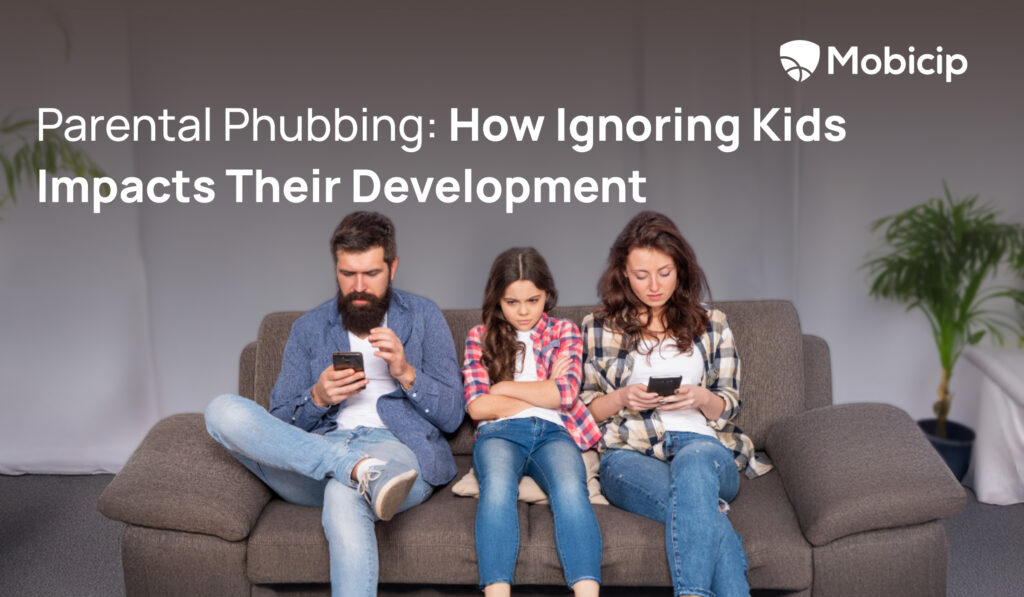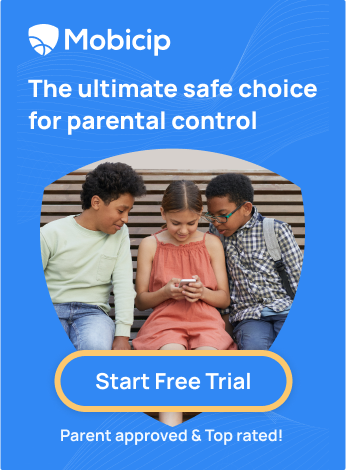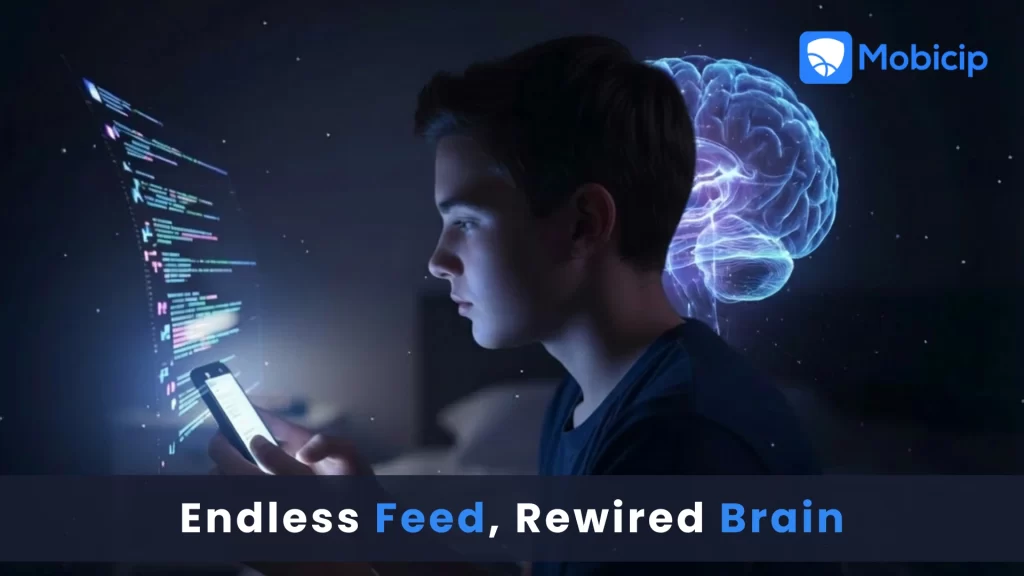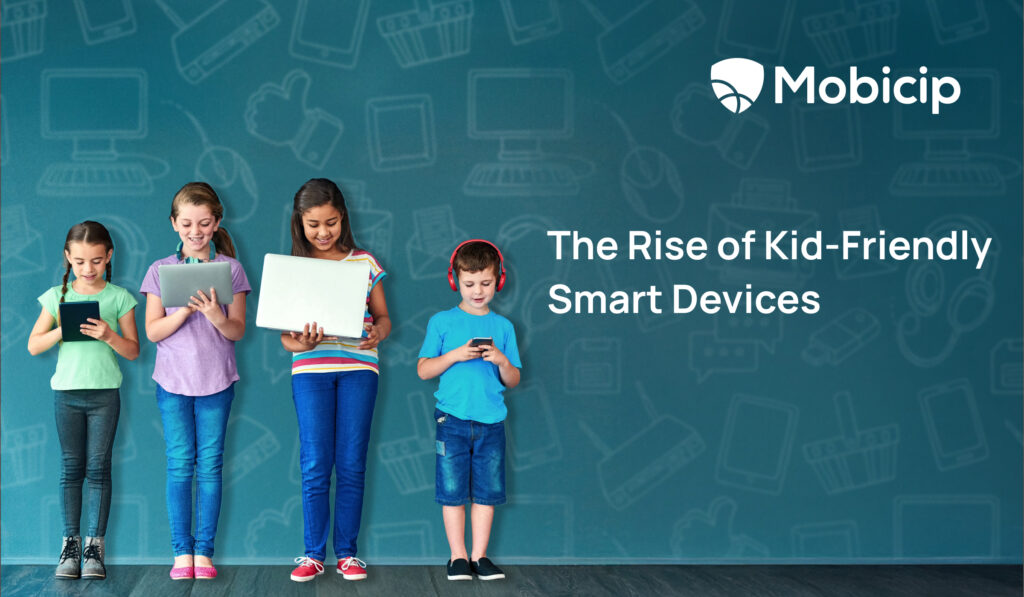Parental Phubbing: How Ignoring Kids Impacts Their Development

Portmanteaus can be odd little things—word mashups that sometimes make us smile and sometimes make us think. One of the more recent and revealing ones is phubbing, short for “phone snubbing.” It describes the act of ignoring someone in favor of your phone. When parents do this to their children, it’s called parental phubbing—and it’s quietly becoming one of the most concerning parenting issues of the digital age.
Modern parenting has seen a wide range of styles: helicopter parenting, tiger parenting, free-range parenting, dolphin parenting, and even jellyfish and snowplow parenting. Each reflects different beliefs about how involved or relaxed a parent should be. But parental phubbing is different—it’s not really a “style.” It’s a byproduct of distraction, where technology slowly chips away at moments of connection.
And those missed moments matter. Children need responsive, engaged interactions with their caregivers to develop emotionally and socially. When parents are constantly distracted by screens, kids may feel unseen, unimportant, or even rejected.
In this post, we’ll look at what parental phubbing is, why it matters, the signs to watch for, and how it can impact kids. We’ll also share practical ways to reduce it—and show how tools like Mobicip can help parents create a more mindful and connected digital environment at home.
What is Parental Phubbing?
The term phubbing was first coined in 2012 to describe being engrossed in the phone and ignoring the person one is supposed to be interacting face-to-face with. Over time, the term has evolved to reflect a growing social concern: how our obsession with smartphones affects close relationships. When this behavior shows up in parent-child interactions, it’s called parental phubbing.
Parental phubbing occurs when parents focus more on their phones than on their children during everyday moments—mealtimes, bedtime routines, school pick-ups, and playtime. These may seem like harmless distractions, but repeated instances can leave children feeling overlooked and undervalued.
How Parental Phubbing Differs from General Phubbing
Phubbing can happen in many relationships, from friends to coworkers. However, when parents phub their children, the consequences are far more serious. Unlike adult relationships where partners or friends can easily communicate boundaries or seek attention elsewhere, children depend heavily on their parents for emotional support and development. They learn through eye contact, verbal cues, and shared moments of attention. When a parent frequently ignores these needs by focusing on a phone, it can damage the child’s sense of security and slow their social and emotional growth. Children need consistent engagement to build confidence and trust, making parental phubbing a unique and concerning issue.
How Smartphone Dependency Contributes to Parental Phubbing
Many parents don’t intentionally ignore their children; rather, parental phubbing often stems from smartphone dependency. Our devices are designed to capture attention through endless notifications, social media updates, and messages. This creates a culture of constant connectivity, making it difficult for parents to fully disengage, even during important moments with their kids. The habit of checking phones can become automatic, especially when overwhelmed by work, stress, or digital overload. Unfortunately, this often means children are left waiting for attention during moments when they most need it.
Signs You Might Be Phubbing Your Child
- Checking your phone during meals or conversations
- Responding to notifications while your child is playing or telling a story
- Asking your child to “wait a minute” repeatedly as you scroll
- Feeling anxious or uneasy when away from your phone
- Missing cues when your child tries to get your attention
Recognizing these signs is key to making positive changes and reconnecting with your child.
Psychological Impact of Parental Phubbing on Children
“Don’t worry that children never listen to you; worry that they are always watching you.” — Robert Fulghum
Children may not always follow instructions, but they are constantly observing. When a parent habitually prioritizes a phone over meaningful interaction, kids internalize the message that they are less important. Parental phubbing may seem minor or unintentional, but research shows it can have serious psychological consequences. It affects everything from a child’s emotional well-being to their ability to connect with others and succeed in school.
Feelings of Rejection: How Ignored Children Develop Emotional Distress
When parents are too distracted to respond, children may feel unimportant or unwanted. Repeated experiences of being ignored can trigger feelings of rejection, loneliness, and insecurity—especially in younger children who depend on consistent emotional feedback.
Social Disconnection: Reduced Ability to Form Healthy Relationships
Children learn social cues and communication skills through interaction with caregivers. When these interactions are interrupted or shallow, it can hinder the child’s ability to form healthy relationships later in life.
Increased Anxiety and Depression
Studies have found links between parental phubbing and higher rates of anxiety, depression, and emotional dysregulation in children. Lack of parental attention creates emotional instability and a deep sense of being overlooked.
Effects on Cognitive Development
- Reduced attention span: Limited engagement from parents can make it harder for children to focus.
- Lower academic performance: Studies suggest a correlation between parental phubbing and declining grades.
- Impaired problem-solving skills: Interactive conversations with parents help build critical thinking.
Behavioral Consequences
- Aggressive tendencies: Children may act out to regain attention.
- Cyberbullying and digital addiction: Kids mirror their parents’ screen habits.
- Seeking validation elsewhere: Many turn to social media for affirmation.
Impact on Parent-Child Bonding
Parental phubbing affects the foundation of a strong parent-child relationship. When children are consistently ignored in favor of a screen:
- Trust begins to erode, leading to emotional insecurity.
- Shared time loses value, as even routine moments—like meals or storytime—feel interrupted or dismissed.
- Children may withdraw emotionally, sensing that they come second to a device.
Over time, this pattern creates emotional distance that can persist into adolescence and adulthood. A child who feels sidelined may grow up struggling to build open, trusting relationships—even with the very people meant to guide and support them.
How Parents Can Prevent Phubbing
Parental phubbing may feel like an invisible problem—parents often don’t realize how much their phone use affects their children. But preventing phubbing is essential to maintaining healthy relationships and supporting a child’s emotional development. By becoming more mindful of smartphone habits, setting clear boundaries, and leveraging helpful technology, parents can reclaim quality time and nurture stronger connections with their kids.
Mindful Smartphone Use: Strategies to Reduce Parental Phubbing
The first step to preventing parental phubbing is adopting mindful smartphone use. This means being fully present during interactions with your child and recognizing when your phone is pulling your attention away. Some practical strategies include:
- Turning off non-essential notifications during family time to avoid constant interruptions.
- Setting specific times to check your phone instead of responding impulsively throughout the day.
- Using “Do Not Disturb” mode during meals, playtime, or bedtime routines.
- Placing your phone out of reach to reduce temptation and encourage focus on your child.
Mindfulness encourages parents to treat their children’s needs as priority, creating space for genuine engagement and communication.
Setting Digital Boundaries: Creating Phone-Free Family Time
Establishing clear digital boundaries is another effective way to prevent phubbing. Families can create phone-free zones and times that encourage presence and connection. Consider:
- Designating mealtimes and certain rooms (like the dining area or bedrooms) as phone-free zones.
- Scheduling regular “screen-free” periods for activities such as reading, playing games, or outdoor time.
- Modeling balanced device use, demonstrating to children that phones don’t need to dominate every moment.
- Communicating openly about the importance of undistracted time together, so children understand these boundaries aren’t arbitrary but intentional.
By building these boundaries, parents show their children that attention and interaction are valued above digital distractions.
Using Parental Control Apps Like Mobicip
Technology doesn’t have to be the enemy in reducing phubbing—when used thoughtfully, it can actually support healthier habits. Parental control apps like Mobicip provide tools that help families manage screen time and create balanced digital routines.
Features of Mobicip That Can Help Get Over Parental Phubbing:
- Screen Time Limits: Mobicip allows parents to set daily time limits for apps and devices, encouraging both parents and children to reduce unnecessary phone use.
- Scheduled Device Breaks: Parents can program phone-free times during meals, homework, or family activities to ensure undistracted moments together.
- App Blocking: The ability to block distracting apps during critical family times helps prevent the temptation to check phones constantly.
- Activity Reports: Mobicip provides insights into screen usage patterns, helping parents become aware of their own habits as well as their children’s, promoting accountability.
- Safe Browsing and Content Filtering: Ensures children’s online experiences are secure, allowing parents to focus on quality time without worry.

By integrating tools like Mobicip, parents can support their efforts to reduce phubbing and foster mindful, connected family relationships.
Conclusion
Parental phubbing is more than just a modern annoyance—it signals a shift in how families relate in an age dominated by screens. It challenges parents to rethink what it means to truly be present with their children amid constant digital distractions. Recognizing the problem is only the beginning; the deeper challenge lies in cultivating a family culture that values connection over convenience.
This calls for a new kind of digital literacy within the home—one that balances the benefits of technology with intentional, undistracted moments of togetherness. When parents actively choose to engage with their children rather than their devices, they model healthy habits that children will carry into adulthood. These interactions build emotional resilience, encourage open communication, and establish a foundation of trust that technology can never replace.
Ultimately, overcoming parental phubbing means reclaiming the small, everyday moments where real bonding happens—the shared laughter, the quiet conversations, and even the simple act of being seen and heard. In doing so, families don’t just protect childhood development; they nurture lifelong relationships grounded in presence, attention, and love. Embracing this mindset transforms parenting in the digital era from a battle against distraction into an opportunity for deeper connection and growth.
Watch Video here.





